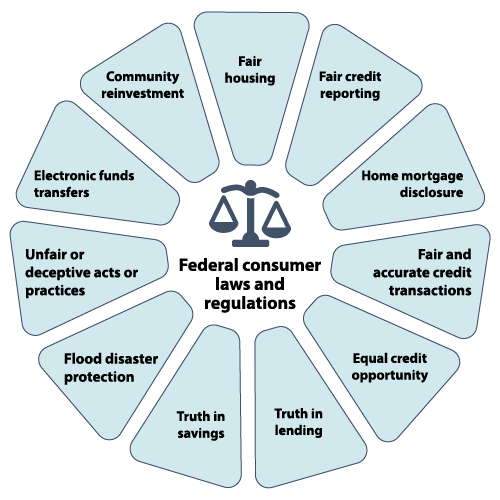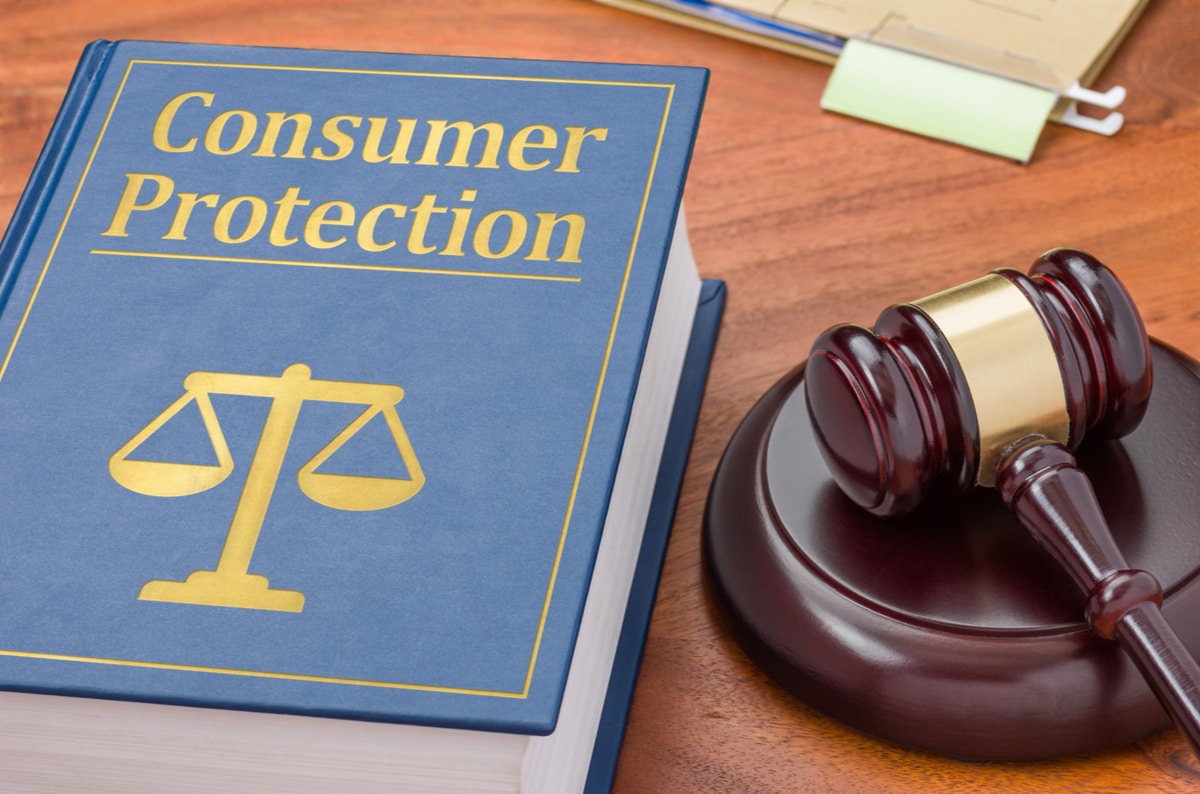Federal Consumer Protection
Author: Law Guider
Date: 2024-10-21
Category: Law
In today's complex marketplace, consumer protection is more important than ever. Federal consumer protection laws and agencies play a crucial role in safeguarding the rights of consumers and ensuring fair trade practices. This blog post delves into the intricacies of federal consumer protection, exploring its history, key agencies, major laws, and their impact on consumers and businesses alike.
Understanding Federal Consumer Protection
Federal consumer protection encompasses a range of legislative and regulatory measures designed to shield consumers from unfair, deceptive, or fraudulent practices. These protections ensure that consumers can make informed decisions and that businesses operate transparently and ethically.

The Evolution of Consumer Protection
The concept of consumer protection has evolved significantly over the years. Initially, consumer protection focused primarily on preventing fraud and ensuring product safety. However, with the advent of modern commerce and technology, the scope has expanded to include digital privacy, financial services, and more.
Why Consumer Protection Matters
Consumer protection is vital for maintaining trust in the marketplace. It ensures that:
- Consumers receive accurate information about products and services.
- Products are safe and meet quality standards.
- Businesses compete fairly, fostering innovation and growth.
- Consumer rights are upheld, allowing redressal in case of disputes.
Key Federal Agencies Involved
Several federal agencies are tasked with enforcing consumer protection laws. These agencies play distinct roles in safeguarding consumer interests.
Federal Trade Commission (FTC)
The FTC is the primary federal agency responsible for protecting consumers. It enforces laws related to advertising, marketing, and consumer credit practices. The FTC also combats anticompetitive practices affecting the economy.
Consumer Financial Protection Bureau (CFPB)
The CFPB focuses on financial products and services. It ensures that consumers have access to transparent and fair financial services, tackling issues like predatory lending and misleading financial products.
Food and Drug Administration (FDA)
The FDA regulates food, pharmaceuticals, cosmetics, and medical devices, ensuring that products are safe and properly labeled. It plays a critical role in protecting public health.
Federal Communications Commission (FCC)
The FCC regulates interstate and international communications. It safeguards consumer interests in areas such as telecommunications, radio, and television.
Major Federal Consumer Protection Laws

Several key laws form the backbone of federal consumer protection, addressing various aspects of consumer rights and business responsibilities.
The Federal Trade Commission Act
The FTC Act created the Federal Trade Commission and grants it authority to prevent unfair or deceptive acts in commerce. It serves as a foundational law for many consumer protection initiatives.
The Consumer Product Safety Act
This act established the Consumer Product Safety Commission (CPSC), which develops standards and bans hazardous products. It ensures that consumer products meet safety requirements.
The Fair Credit Reporting Act (FCRA)
The FCRA promotes accuracy, fairness, and privacy in consumer credit reporting. It provides consumers with the right to access their credit reports and dispute inaccuracies.
The Truth in Lending Act (TILA)
TILA requires lenders to disclose credit terms and costs in a clear manner, empowering consumers to compare and make informed financial decisions.
The Children's Online Privacy Protection Act (COPPA)
COPPA protects the privacy of children under 13 by imposing specific requirements on websites and online services targeting young audiences.
The Impact of Consumer Protection Laws
Consumer protection laws significantly impact both consumers and businesses. Understanding these impacts helps highlight the importance of these regulations.
Benefits to Consumers
Consumer protection laws provide numerous benefits, including:
- Enhanced Safety: Ensuring that products meet safety standards reduces the risk of harm.
- Informed Choices: Clear labeling and advertising allow consumers to make better purchasing decisions.
- Dispute Resolution: Consumers have avenues for redressal in case of dissatisfaction or fraud.
Responsibilities for Businesses
Businesses must adhere to consumer protection regulations, which include:
- Transparency: Providing honest information about their products and services.
- Compliance: Meeting safety standards and regulatory requirements.
- Ethical Practices: Avoiding deceptive marketing and unfair competition.
Challenges and Future Trends
Despite robust consumer protection frameworks, challenges persist, and new trends continue to shape the landscape.
Digital and Online Consumer Protection
The rise of e-commerce and digital platforms presents unique challenges. Issues like data privacy, online scams, and cybersecurity are increasingly relevant, necessitating updates to existing laws and new regulations.
Globalization and Consumer Protection
As global trade expands, aligning consumer protection standards internationally becomes crucial. Cross-border transactions require cooperation among countries to address issues like counterfeit goods and digital privacy.
The Role of Technology
Technological advancements offer both opportunities and challenges for consumer protection. While technology can enhance regulatory enforcement, it also requires regulators to adapt to emerging threats like artificial intelligence and blockchain.
Conclusion
Federal consumer protection is a dynamic and essential component of the modern marketplace. By enforcing laws and regulations, federal agencies ensure that consumers can trust the products and services they purchase. As the marketplace evolves, consumer protection will continue to adapt, addressing new challenges and safeguarding consumer rights in an ever-changing world.
Understanding and supporting these protections not only benefits consumers but also contributes to a fair, competitive, and innovative economy. As consumers, staying informed about our rights and the protections in place empowers us to make better choices and demand accountability from businesses.